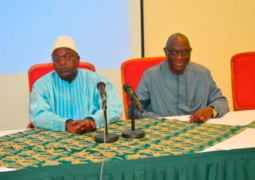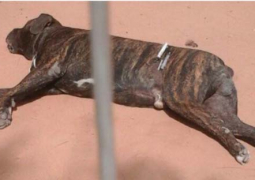The certification ceremony took place on Friday 17 January 2014 at the Rural Farmer Training Centre in Jenoi, Lower River Region.
Soil management and maintenance in response to bumper production in terms of agriculture was the theme of the training with special urge to diversify knowledge of scientifically proven reasons for the weakening of the farmlands in the country.
In his introductory statement, Foday Jadama, deputy director of soil and water management services, said rural farmers were exposed to latest findings about the status of agricultural lands on which they depend for their traditional and economic ventures.
Within two days, he said, the training took the participants through several topics of relevance relating to the main theme.
“Among the presentations were environmental management and development, causes and consequences of land degradation, upland conservation practices and agronomic conservation,” he said.
Mr Jadama justified the need of farmers’ education, saying the scheme was necessitated by the dense population nature of the lands of The Gambia resulting to the grievous felling of trees, for settlement and infrastructural development. This, he remarked, has a great implication on the environment.
“This intervention is in line with the expected good practices on land to keep the soil alive in the interest of crop production,” says the Lower River Regional director of agriculture, Ebrima Saidy.
In the area of soil management, Jerro Manneh, Monitoring and Evaluation Officer for PIWAMP, reported that the project, which is set to phase out in June this year, was designed to have a nationwide coverage of low and high land that are used in agricultural production in The Gambia.
“It seeks to address interlinked problems of rural poverty, food insecurity and degradation,” he said.
Mr Manneh said the training was highly relevant to add to the number of persons trained in the management of agricultural lands.
Deputy Governor of the Lower River Region (LRR), Abu Njie, said the training was an information-sharing ground in agriculture between farmers and the resource persons.
Once the discussion is productive, he said, it would aid the country’s dream of attaining food self sufficiency.




